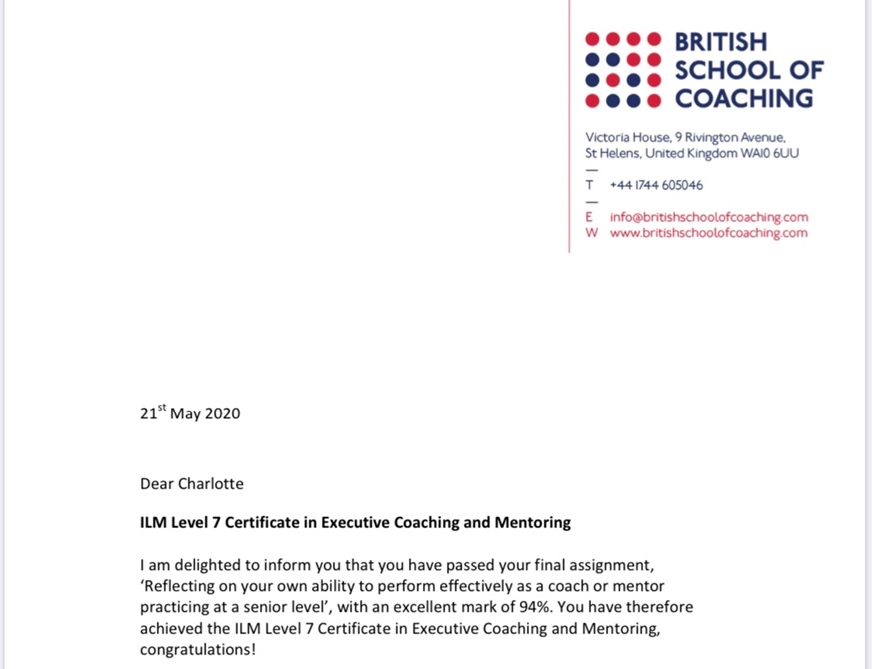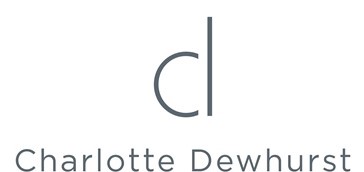Back in August 2018 when I decided to set up my own business so that I could consult as Interim Chief Marketing Officer at ClearScore, whilst formally learning to be an executive coach, qualifying seemed to be a long way off…
In fact, there were 48 teaching hours, 20 pro-bono coaching hours, 100’s of independent study hours and over 70,000 words between me and crossing the finish line for the ILM Level 7 Certificate in Executive Coaching and Mentoring.

My pathway to coaching forms an important part of my story, and shapes who I am as a coach today. When I was experiencing a steep growth trajectory in my career, back in 2013, I was fortunate enough to work with my first executive coach. The journey that I went on during this coaching was phenomenal, with the result of increased levels of self-awareness, measurably improved impact and heightened (and sustainable) resilience.
I continued to work with executive coaches throughout the next 5 years of my career, growing as a leader within senior marketing roles. I started to receive feedback from those who I led that I myself should become a coach. The people I was leading told me consistently that I listened well, helped them process their thoughts, built their own self-confidence and always held them accountable for their actions. On careful reflection, I agreed that this was a skillset I needed to develop further and began my exciting new learning trajectory.
In 2017 I started to research courses, and spent six months considering the route I would take to pursue coaching, considering Masters degrees in Positive Psychology right through to short but functional coaching courses which sounded impressive, but seemed to contain little substance. During this research, I found the British School of Coaching taught ILM Level 7 in Executive Coaching and Mentoring. What appealed to me about this course was three things: the balance of theory and best practice, the rigorous and thorough requirements for me as a student and the quality of teaching and supervision. The course included 20 hours of supervised pro-bono coaching, which was a pivotal part of my journey and allowed me to objectively consolidate the coaching practice I had done to date, mostly within organisations I had worked in.
Being able to bring this ‘gift’ to others as a qualified coach now feels like an incredible privilege, whether that’s through my executive coaching practice or in my next leadership role as Chief Marketing Officer, where I can bring this mindset to the teams I lead and the organisation I operate within. Needless to say, I’ll hope to continue to have the support of an executive coach by my side when I face my own leadership challenges in the future.
